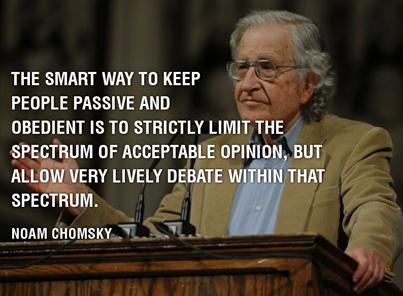'Science and religion are based on different aspects of human experience. In science, explanations must be based on evidence drawn from examining the natural world. Scientifically based observations or experiments that conflict with an explanation eventually must lead to modification or even abandonment of that explanation. Religious faith, in contrast, does not depend only on empirical evidence, is not necessarily modified in the face of conflicting evidence, and typically involves supernatural forces or entities. Because they are not a part of nature, supernatural entities cannot be investigated by science. In this sense, science and religion are separate and address aspects of human understanding in different ways. Attempts to pit science and religion against each other create controversy where none needs to exist.'
I do encourage everyone to read the rest of that page linked above.
Earlier today, the
I Fucking Love Science (IFLS) FB page posted a link about what happens to you if you happened to
give up sugar for Lent. I'm always somewhat wary of seeing links like this on IFLS, not because I'm not religious, quite the opposite, but because I've become accustomed to the hostility and mindless bashing that comes with even remotely daring to have the notions of both science and religion in the same vicinity. I have seen it before when IFLS linked to an article talking about the potential discovery of the birthplace of Jesus. Now I understand that IFLS and any similar sites are not The History Channel or otherwise historically informative, but when I see comments like, 'Why are you reporting on a myth', I am filled with a very quiet but very real fury (look up the history for two seconds, honestly). On today's post about sugar addiction that
dared to mention Lent, some choice comments included, 'If you practise Lent, there's already something wrong with your head' and 'do people who fucking love science observe Lent?'.
Clearly that first comment is far more incendiary than the second which, outside of my own bias and doubt, could have been genuinely meant. In that case, I will answer it with a resounding yes. Some people who fucking love science actually observe Lent because they are both scientists and Catholics or Christians. In fact, growing up, the majority of priests I knew were scholars in science, most notably physics. Even now, some of my friends who are scientists and engineers are also very devout Catholics who have no problem pursuing science and practising their faith at the same time. Bearing further mention are the countless Christian or Catholic scientists who have contributed so significantly to our modern understanding of the world. How many people know who Georges Lemaitre, Angelo Secchi or Roger Bacon are? Look them up.
[On a personal note, I am a happily practising Catholic with a Bachelor of Science in Psychology (although one who admittedly chose not to pursue it as a career but professionally assists others who have) who agrees wholeheartedly with the use of the scientific method to learn more about the world around us. Any qualms I may have with scientific pursuit usually fall under the umbrella of scientific ethics (an area into which I undertook postgraduate study), often in the area of bioethics (eg. cloning), but such areas are generally contentious and without medical or scientific consensus so I'm far from alone on that count, religious or not.]
Essentially, what is upsetting and angering about comments that immediately jump on the science and religion can't coexist is that these days, some such declarations (not all, I'm sure, but many) are made without having actually attempted to read or research the idea and appear to have become Pop Fact, much like the notion that religion has caused the most wars (again, fury) despite the fact that according to recorded history, only 123 out of 1763 wars and less than 2% of all people killed in warfare have been classified as religiously based, according to the Encyclopedia of Wars by Phillips and Axelrod. Yet, people seem more than willing to blindly accept that religion is a bigger source of evil than outright human greed and territorial conquest and the need for power and control.
Also, from experience, a lot of people who seem to 'love' science, have no damn clue what it actually is. As a Psych student, I was often told by people I knew in the hard sciences that 'Psych is not a science' despite the fact that the method by which I spent a degree being taught to study observable human behaviour was most definitely the scientific method and the statistical analysis that followed (which I have gladly left behind) was engaged to ensure we were obtaining results as statistically significant as possible. We didn't do that shit for fun, we were trying to see if the variables we had manipulated in order to test our hypotheses were actually making a real difference -
just like people do in labs. Pardon us for trying to scientifically research something that is intangible and therefore more difficult to assess. To this day, I say those studying cognitive psychology are some of the most creative people I've ever encountered. Being able to construct experiments to test and observe memory? Insanely imaginative and clever.
But I digress. As the statement made above by the Academy of Sciences points out, scientific reason and faith and belief look at things from completely different angles and ultimately, that's how you want to view the world - from as many angles as possible. Considering we live in an age obsessed with pluralistic thought and perspective, it's odd that people are then only willing to engage in understanding the world via one very often flawed means. When journalists investigate a story, attacking it from just the one side or the one perspective, it begs questions of bias, an agenda and a lack of objectivity. Why is it suddenly completely objective to stand by science and nothing else?
I think what people get confused is scientific fact versus scientific discovery and possibility. More likely than not, what many people take on board as scientific 'fact' is nothing more than the replicated results of studies that provide evidence for particular conclusions to be drawn. These are not facts, they are findings that potentially support hypotheses and once disproven or falsified, will be altered. As an undergrad science student, I was trained to write, '... there is evidence to suggest...' ad nauseum. Even in areas of more solid and tangible results, for example, biological or medical discoveries and treatments, there are only so many treatments, medications and therapies that work 100% of the time. As a sufferer of a number of chronic medical conditions, I can at least personally attest to the fact that many treatments that have worked on many past patients have not been able to work on me and I am not alone in that at all. When it comes to science, we do what we can with the knowledge that we have and still test what works and what doesn't. The rest, we take on almost as a form of faith, eg. I have never seen these medical results in others for myself, but I have taken it on faith that the medical community backing these assertions aren't simply lying to me. In that same spirit, I have never been to space, seen the moon's surface for myself or seen the Red Spot on Jupiter with my own eyes, but I have faith and trust in those astrophysicists who have done the research for me.
Now, if someone has no belief or has chosen not to believe in the supernatural (I don't, however, tend to adhere to the notion that anyone chooses what they believe. While specific beliefs can be altered, belief in itself is simply that. You believe something or you don't), then fine, if you have no room for any form of spirituality in your life or are happy in the notion that biological or neurological processes or quantum mechanics are enough explanation for the more intangible aspects of life, then by all means, that is absolutely your call. This does not, however, give you the authority to declare as fact beyond a shadow of a doubt, that those who do believe in a supernatural aspect of the world are either dead wrong and intellectually pitiable because in some cases, the likelihood will be that those people have put a lot more thought into it because that which is intangible bears far more
need for thought by nature of its invisibility.
I do understand that there are people out there who have thoughtlessly decided to follow one belief system or another, among them Catholics and Christians, however, this type of believer is not strictly bound within the arena of religious faith. There are blind adherents to scientists, philosophers, hell, nowadays, even celebrities (I'm looking at you, Jenny McCarthy, incidental anti-vax champion. More fury).
Rather than demonise, however, as I've always stood by the notion that everyone believes what they do for a reason, whatever reasons they may be, at the end of the day, by all means, disagree, mock, even, if you really must, but maybe once in a while, instead of burrowing comfortably in your warren of disbelief/belief, ask someone you just do not understand -
why?


